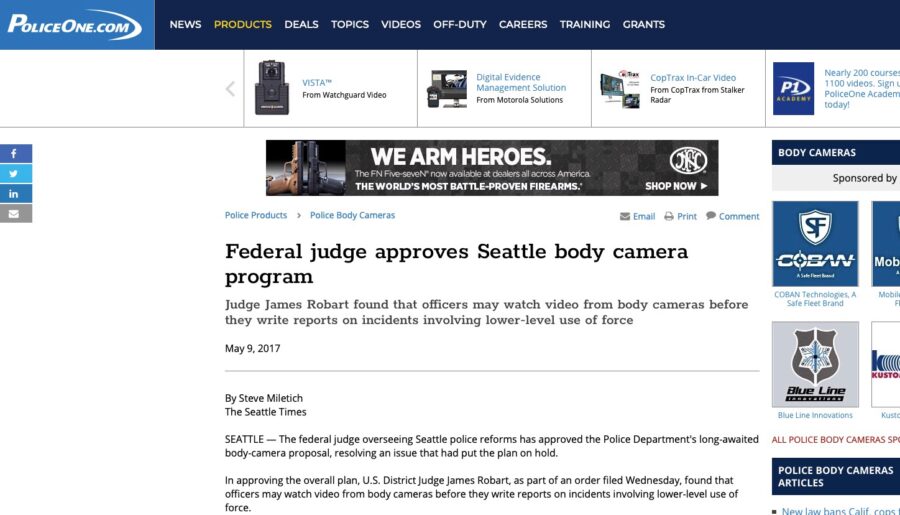In approving the overall plan, U.S. District Judge James Robart, as part of an order filed Wednesday, found that officers may watch video from body cameras before they write reports on incidents involving lower-level use of force.
“The department is pleased that the Court approved our BWC (body-worn camera) policy and recognized the thoughtful rationale behind its development,” Brian Maxey, the Police Department’s chief operating officer, said in a statement.
“We look forward to working with the unions to move our BWC program forward under the approved policy,” he added.
Robart found the proposal doesn’t violate the consent decree, noting its goal is to focus police resources on the most serious cases.
The judge also cited the city’s argument that officers, under the monitor’s proposal, would produce not only an initial report but also supplemental reports after they view body-camera video.
“The time officers take on these additional reports is time that they are not available for patrol,” Robart wrote.
Robart also noted the Police Department’s policy appears to be more restrictive than the vast majority of law-enforcement agencies, which, according to Seattle police research, either place no restrictions on when officers can review video or only prohibit them from viewing video of police shootings or the highest level of force.
“Indeed, if enacted, SPD’s proposed policy would be the fourth most restrictive in the country,” the judge wrote.


